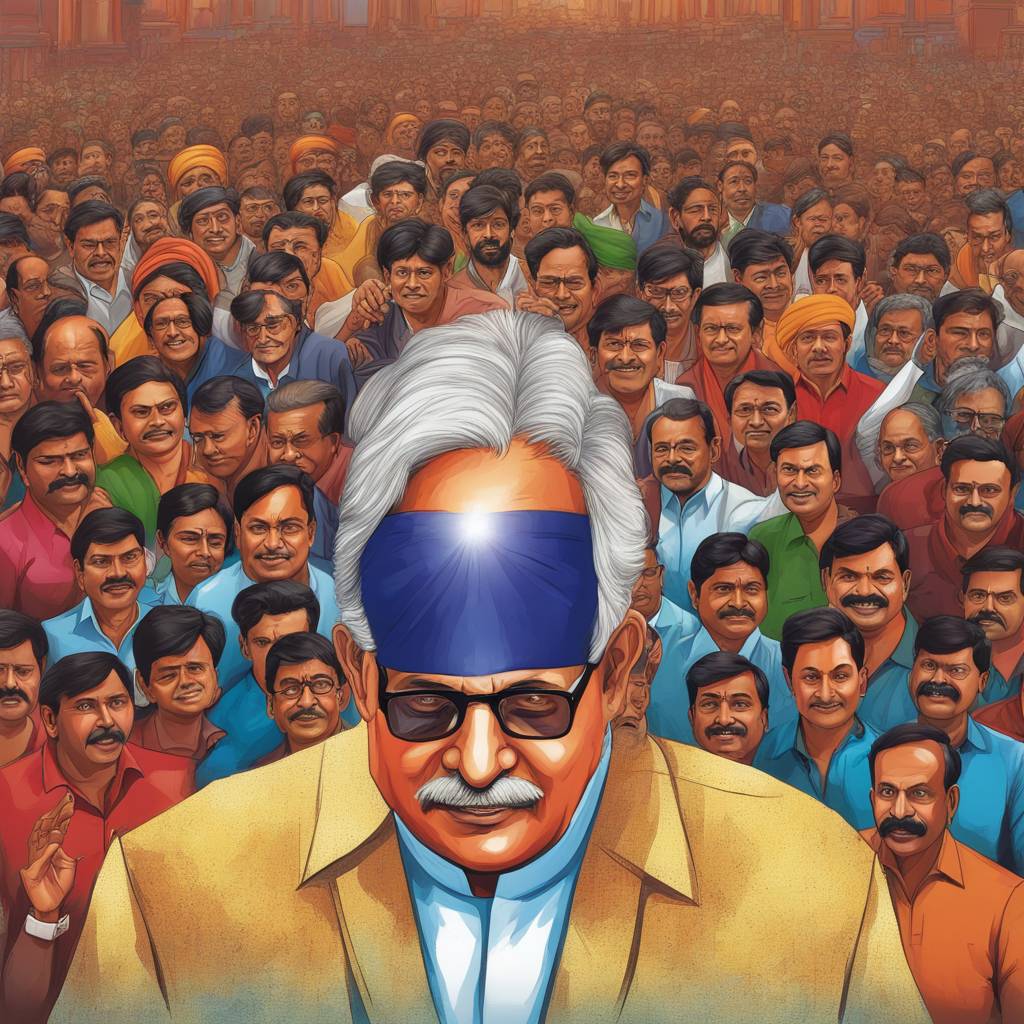Indian opposition leader Arvind Kejriwal was arrested by the federal Enforcement Directorate and accused of accepting bribes from liquor contractors. Kejriwal’s political party, the Aam Aadmi Party, denied the accusations and vowed to fight the case in court. Kejriwal insisted that his arrest was a political conspiracy, as his party, part of a broader opposition alliance called INDIA, prepares to challenge Prime Minister Narendra Modi’s ruling Bharatiya Janata Party in the upcoming general election. His arrest sparked protests from supporters who believe that the government is using its power to target and weaken opposition figures.
The federal agency accused Kejriwal of being the “kingpin and key conspirator” in the bribery case, but Kejriwal refuted the allegations and accused the directorate of manipulating investigative agencies for political reasons. The arrest of Kejriwal, a prominent opposition leader, is seen as part of a broader pattern of government actions against opposition figures in India ahead of the general election. Opposition parties have accused the Modi government of misusing its power to harass and undermine political opponents, while the BJP insists that law enforcement agencies are acting independently. The arrest of Kejriwal and freezing of the Congress party’s bank accounts in a tax dispute have raised concerns about the government’s tactics and intentions.
The U.S. State Department expressed concerns about Kejriwal’s arrest and the freezing of the Congress party’s bank accounts, calling for a fair and transparent legal process. In response, Indian officials objected to the comments and summoned officials from the U.S. embassy and the German Embassy to address the issue. India’s Foreign Ministry spokesperson emphasized that legal processes in India are driven by the rule of law, and expressed disappointment in the comments made by foreign officials. The involvement of foreign governments and international scrutiny adds pressure on the Indian government to ensure a fair trial and respect democratic principles.
The arrest of Kejriwal and the ongoing political turmoil in India have raised concerns among Muslims in the country, who fear that new citizenship laws could further marginalize them. The opposition leader’s case has become a focal point for discussions about democracy, rule of law, and government accountability in India. As the general election approaches, the political landscape in India is becoming increasingly charged with allegations of political manipulation, harassment of opposition figures, and concerns about the erosion of democratic norms. The case of Arvind Kejriwal highlights the complex and contentious nature of Indian politics, as rival parties and factions jockey for power and influence in the world’s largest democracy.













